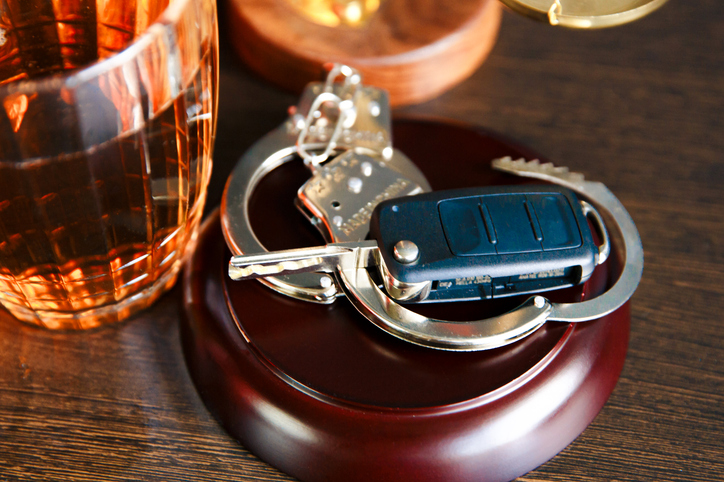GPS-Enabled Ignition Interlock: What Drivers Should Know (2025 Law Update)
In 2025, Tennessee introduced a significant update to its ignition interlock requirements for DUI offenders: mandatory GPS-enabled devices. These changes reflect a growing national trend toward using technology to monitor and deter impaired driving. But what does that mean for drivers facing DUI charges—or already convicted?
This article breaks down the new law, why it matters, how GPS-enhanced ignition interlocks work, and what steps drivers should take to stay compliant and protect their legal standing.
Understanding the Problem: DUI Recidivism and Public Safety
Drunk driving has long been one of Tennessee’s most prosecuted criminal offenses. Yet, despite existing penalties and ignition interlock requirements, recidivism remains a problem. According to [source], nearly one-third of all DUI arrests involve repeat offenders.
Lawmakers have responded by expanding technological oversight. Traditional ignition interlocks—which require the driver to pass a breath test before the vehicle will start—are now paired with GPS tracking, enabling authorities to monitor both sobriety and driving behavior in real time.
But the motivation for this isn’t just safety—it’s also about enforcement. Prior to 2025, many violators tampered with or avoided ignition interlock requirements, undermining court-ordered sentences. GPS-enabled interlocks close those gaps.
The 2025 Law: What Changed in Tennessee?
As of January 1, 2025, Tennessee law now requires GPS-enabled ignition interlock systems for:
- First-time DUI offenders with a BAC over 0.15%
- Repeat DUI offenders (second offense or more)
- Any DUI offense involving an accident or injury
- Drivers with suspended or revoked licenses due to DUI
The law mandates that these devices remain installed for a minimum of 365 days, though the duration may be extended based on the severity of the offense or violations during the monitoring period.
This update builds upon previous interlock laws but adds a layer of real-time location monitoring and tamper detection. Violations—such as attempting to remove the device or drive without blowing—are now automatically reported and may trigger additional penalties, including jail time or extended license suspension.
How GPS-Enabled Ignition Interlocks Work
Traditional ignition interlocks act like in-car breathalyzers. Before the engine starts, drivers must blow into the device to prove sobriety. The device logs the result and, if the breath sample is clean, the engine starts.
The 2025 update adds:
- GPS Tracking: Allows monitoring agencies to track where the vehicle goes and verify that the driver follows court-mandated restrictions (e.g., avoiding alcohol-serving venues or restricted zones).
- Cellular Connectivity: Enables real-time alerts to probation officers or the court.
- Advanced Tamper Detection: Reports disconnection attempts or anomalies in power supply.
- Rolling Retests: Periodic breath samples while driving to prevent circumvention.
Together, these features create a closed-loop accountability system that discourages non-compliance while providing detailed logs that prosecutors and courts can use as evidence.
Real-World Implications: What Drivers Face
The most immediate effect of the law is financial. GPS-enabled devices cost more than traditional ignition interlocks—on average, between $100–$125/month plus installation and removal fees.
For some, this cost is a major burden. While Tennessee provides a financial hardship waiver in limited cases, most defendants must shoulder the cost or risk additional penalties.
More critically, the GPS feature introduces privacy concerns. Drivers may be restricted from traveling outside set areas or may need to explain travel patterns to their probation officer. For example:
- A driver taking a detour to avoid traffic might trigger a violation if they pass through a restricted area.
- A lost or damaged device could count as a probation violation, leading to legal consequences.
Despite these risks, non-compliance carries heavier penalties—including extended interlock periods, license revocation, or jail time for contempt.
Legal Strategy: What DUI Defendants Should Know
For individuals facing DUI charges in Tennessee, understanding the ignition interlock landscape is crucial. The best time to discuss GPS-enabled interlocks is before entering a plea.
An experienced DUI defense attorney can:
- Challenge the necessity of a GPS-enabled device in borderline BAC cases
- Negotiate reduced monitoring terms in exchange for early guilty pleas
- Highlight medical or financial hardship to delay or waive installation
- Review GPS logs if they conflict with your account (e.g., false positive routes)
If you’re already convicted and subject to a GPS-enabled interlock, staying compliant is key. Missed tests, tampering, or unusual driving patterns are all red flags that can land you back in court.
Strategies for Staying Compliant
- Understand the Terms: Read every condition of your sentence or probation order. Your attorney can help interpret vague clauses.
- Use the App: Most interlock companies provide a mobile app to track test results, log device status, and receive alerts.
- Keep Records: Document every test result, service appointment, and any errors or malfunctions.
- Report Issues Immediately: If the device malfunctions, notify the interlock provider and your probation officer within 24 hours.
- Avoid Risky Situations: Don’t drive after even a small drink. Even mouthwash or kombucha can trigger a false positive.
Conclusion: GPS-Enabled Interlocks Are Here to Stay
The 2025 GPS ignition interlock update reflects Tennessee’s tougher stance on impaired driving. For DUI defendants, it means more than just passing a breath test—it means being tracked, monitored, and held accountable 24/7.
While these systems can feel intrusive, they also provide a path forward: by complying fully, you may be able to demonstrate responsibility, shorten probation, and ultimately regain driving freedom. But navigating this path requires awareness, discipline, and often, legal guidance.
If you’re unsure about your obligations under the new law or believe your rights are being violated, speak to a qualified DUI attorney immediately.

